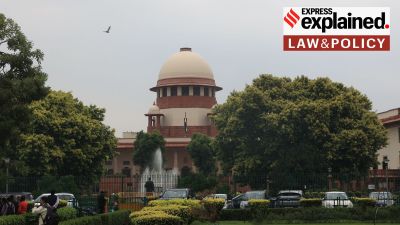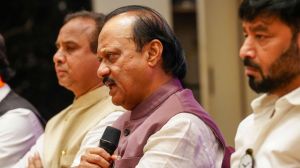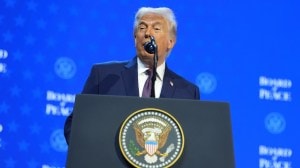Guard the guards
Echoes of the Maharashtra special prosecutor8217;s speech in a nondescript courtroom in Nashik on Saturday will take a while to die down.

Echoes of the Maharashtra special prosecutor8217;s speech in a nondescript courtroom in Nashik on Saturday will take a while to die down. The prosecutor, when requesting that the court allow the police to keep Prasad Purohit in custody for another three days, provided a listening nation with details that were, quite literally, explosive. The most worrying detail: the prosecutor8217;s claim that Purohit, and by extension the network of fundamentalist radicals of which he was a part, had a crucial role to play in the February 2007 bombing of the cross-border Samjhauta Express; a bombing which killed 68 passengers, a majority of them Pakistani, and which was clearly an attempt to derail the slow momentum of peace between India and Pakistan.
Nobody is likely to forget that the man whom the Mumbai Anti-
Terrorism Squad now believe is involved in a series of attacks 8212; many of which were previously blamed on militant Islamists 8212; is a serving lieutenant-colonel in the Indian army. In his Nashik speech, the special prosecutor added to that burden: by discussing the 60 kg of the specialised explosive RDX that Lt Col Purohit is believed to have brought back from an official trip to Jammu and Kashmir. Just the suspicion will leave Indians everywhere with a sense of violation, of a trust betrayed. The political establishment, the
bureaucracy and the police lost public confidence a long time ago; other institutions 8212; the courts, for example 8212; aren8217;t doing too well in that
respect either. The services have always been an exception. Until now.
Of course, the overwhelming probability 8212; realistically, the only possibility 8212; is that Purohit, if proved to be guilty, was a single rotten apple, one who got away with too much for too long because nobody was capable of believing a serving army officer to be involved in such criminality. Yet that metaphor has an origin: of how a single rotten apple is capable of infecting an
entire barrel. That is the fear that Indians will now be forced to carry around with them: the fear that a section of the officer corps have been allowed to become radicalised precisely because it was always
believed impossible such a thing could happen. Those who remember the politicisation, the pull of
divided loyalties that some Sikh officers suffered during the 1980s will be particularly worried. The army has set an example worth following in so many different circumstances, under enormous pressure, with
little thanks; showing other Indian institutions how to deal with the threat of subversive radicalism within is just another way in which it will have to take the lead.
- 01
- 02
- 03
- 04
- 05































